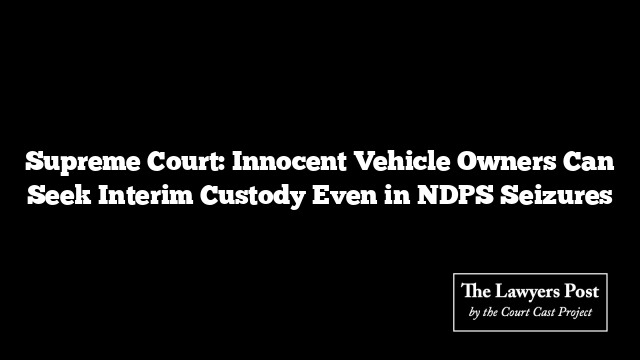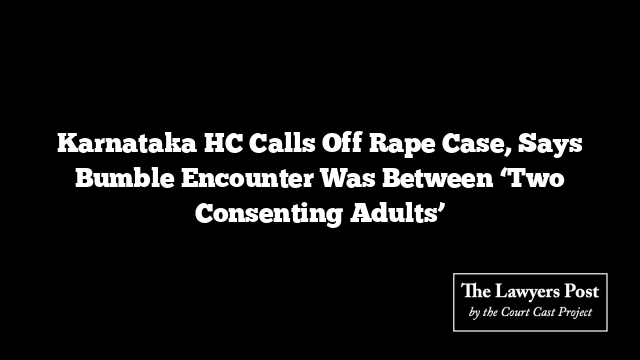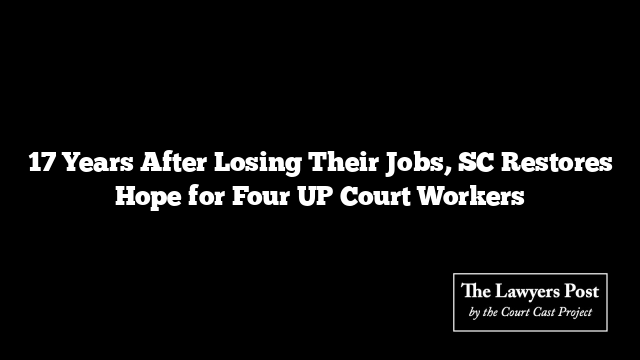The Supreme Court has ruled that an innocent vehicle owner cannot be deprived of interim custody of their vehicle merely because it was seized in connection with a narcotics case. If the owner can show that the vehicle was used without their knowledge or involvement, the courts retain the power to grant its release while the trial is pending.
A Bench of Justices Vikram Nath and Sandeep Mehta clarified that the Narcotic Drugs and Psychotropic Substances (Seizure, Storage, Sampling and Disposal) Rules, 2022 do not strip Special Courts of their authority to order interim release of vehicles. The Court emphasized that these rules, being subordinate legislation, cannot override the core provisions of the NDPS Act itself.
The case stemmed from an appeal by a lorry owner whose vehicle had been confiscated after police discovered narcotic substances in it. Despite evidence showing that the truck was being used to carry iron sheets—and that the owner had no connection with the contraband—the Special Court and the Madras High Court both refused his request for temporary release of the vehicle.
Before the Supreme Court, the owner argued that the 2022 Disposal Rules were never meant to prevent such interim relief and that interpreting them otherwise would go against the parent statute. Accepting this contention, the top court held that the rules must operate in harmony with the NDPS Act, not in conflict with it.
In a judgment authored by Justice Mehta, the Court observed:
“The Rules of 2022 cannot be read as divesting Special Courts of their jurisdiction to consider applications for interim custody or release of a seized vehicle under Sections 451 and 457 of the CrPC. To hold otherwise would unjustly penalize innocent owners, depriving them of their property without judicial examination or an opportunity to be heard.”
The ruling leaned on the precedent set in Tarun Kumar Majhi v. State of West Bengal (2025), where it was held that a vehicle cannot be confiscated if the owner proves it was used without their knowledge or connivance, and that all reasonable precautions had been taken.
Reinforcing that principle, the Court said that the question of confiscation can only be determined after trial, not before. Until then, an owner who can show a lack of awareness or intent in the alleged crime cannot be denied possession of their vehicle.
“When the owner establishes that the conveyance was misused without his knowledge or consent, the law does not permit the automatic forfeiture of his rights. Procedural fairness and the protection of bona fide ownership must guide the application of the NDPS Act,” the Court concluded.





